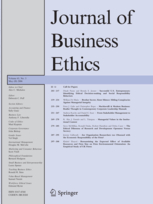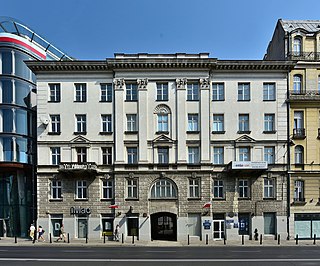Kashubian or Cassubian is a West Slavic language belonging to the Lechitic subgroup along with Polish and Silesian. Although often classified as a language in its own right, it is mostly viewed as a dialect of Polish.

The Jagiellonian University is a public research university in Kraków, Poland. Founded in 1364 by King Casimir III the Great, it is the oldest university in Poland and the 13th oldest university in continuous operation in the world. It is regarded as Poland's most prestigious academic institution. The university has been viewed as a vanguard of Polish culture as well as a significant contributor to the intellectual heritage of Europe.

Alfred Tarski was a Polish-American logician and mathematician. A prolific author best known for his work on model theory, metamathematics, and algebraic logic, he also contributed to abstract algebra, topology, geometry, measure theory, mathematical logic, set theory, and analytic philosophy.

Jan Łukasiewicz was a Polish logician and philosopher who is best known for Polish notation and Łukasiewicz logic. His work centred on philosophical logic, mathematical logic and history of logic. He thought innovatively about traditional propositional logic, the principle of non-contradiction and the law of excluded middle, offering one of the earliest systems of many-valued logic. Contemporary research on Aristotelian logic also builds on innovative works by Łukasiewicz, which applied methods from modern logic to the formalization of Aristotle's syllogistic.

Leszek Kołakowski was a Polish philosopher and historian of ideas. He is best known for his critical analyses of Marxist thought, such as in his three-volume history of Marxist philosophy Main Currents of Marxism (1976). In his later work, Kołakowski increasingly focused on religious questions. In his 1986 Jefferson Lecture, he asserted that "we learn history not in order to know how to behave or how to succeed, but to know who we are".

Florian Witold Znaniecki was a Polish and American philosopher and sociologist who taught and wrote in Poland and in the United States. Over the course of his work he shifted his focus from philosophy to sociology. He remains a major figure in the history of Polish and American sociology; the founder of Polish academic sociology, and of an entire school of thought in sociology. He won international renown as co-author, with William I. Thomas, of the study, The Polish Peasant in Europe and America (1918–1920), which is considered the foundation of modern empirical sociology. He also made major contributions to sociological theory, introducing terms such as humanistic coefficient and culturalism.

Hugo Stumberg Kołłątaj, also spelled Kołłątay, was a prominent Polish constitutional reformer and educationalist, and one of the most prominent figures of the Polish Enlightenment. He served as Deputy Chancellor of the Crown between 1791–92. He was a Roman Catholic priest, social and political activist, political thinker, historian, philosopher, and polymath.

The Polish Academy of Arts and Sciences or Polish Academy of Learning, headquartered in Kraków and founded in 1872, is one of two institutions in contemporary Poland having the nature of an academy of sciences.

The National Library is the central Polish library, subject directly to the Ministry of Culture and National Heritage of the Republic of Poland.
Philosophy of geography is the subfield of philosophy which deals with epistemological, metaphysical, and axiological issues in geography, with geographic methodology in general, and with more broadly related issues such as the perception and representation of space and place.
The history of philosophy in Poland parallels the evolution of philosophy in Europe in general.

Casimir Lewy was a Polish philosopher of Jewish descent.

Sociology in Poland has been developing, as has sociology throughout Europe, since the mid-19th century. Although, due to the Partitions of Poland, that country did not exist as an independent state in the 19th century or until the end of World War I, some Polish scholars published work clearly belonging to the field of sociology.

The Journal of Business Ethics is a peer-reviewed academic journal published by Springer Nature B.V. The Journal of Business Ethics is one of the journals used by the Financial Times for in compiling the Business Schools research rank.

Edward Dembowski was a Polish philosopher, literary critic, journalist, and leftist independence activist.

Studia Logica, is a scientific journal publishing papers employing formal tools from Mathematics and Logic. The scope of papers published in Studia Logica covers all scientific disciplines; the key criterion for published papers is not their topic but their method: they are required to contain significant and original results concerning formal systems and their properties. The journal offers papers on topics in general logic and on applications of logic to methodology of science, linguistics, philosophy, and other branches of knowledge. The journal is published by the Institute of Philosophy and Sociology of the Polish Academy of Sciences and Springer publications.
Beata Szymańska is a Polish poet, writer and philosopher.
The Minnesota Journal of International Law is a biannual law review published by students at the University of Minnesota Law School. It covers international and comparative law and policy, with a particular emphasis on politics, economics, and fundamental rights.

The Polish Centre of Mediterranean Archaeology University of Warsaw operates as an independent research institute of the University of Warsaw under the present name since 1990. It is dedicated to organizing, implementing and coordinating archaeological research, both excavations and study projects, as well as conservation, reconstruction and restoration projects, in northeastern Africa, the Near East and Cyprus. Projects include sites covering a broad chronological spectrum from the dawn of civilization through all the historic periods of the ancient Mediterranean civilizations to Late Antiquity and early Islam. Tasks beside fieldwork include comprehensive documentation of finds, archives management and publication of the results in keeping with international research standards. The PCMA manages the Research Centre in Cairo and Polish Archaeological Unit in Khartoum.

Tatjana Višak, often credited as Tatjana Visak, is a German philosopher specialising in ethics and political philosophy who is currently based in the Department of Philosophy and Business Ethics at the University of Mannheim. She is the author of the monographs Killing Happy Animals and Capacity for Welfare Across Species, and the editor, with the political theorist Robert Garner, of The Ethics of Killing Animals.















